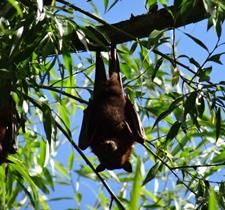The past months of isolation have challenged many a family to find ways to continue children’s learning at home. We have been urged to turn to the greatest teaching resource we have: nature.
We all know that ‘nature’ is available in our backyards, or (lucky us) only a short walk away. We all know that nature contains all of the building blocks of education, and provides an endlessly fascinating array of starting points for learning.
But in launching into nature as a teaching tool, many of us have uncovered our own lack of basic knowledge. How do plants grow? How does the water cycle work? What really is a pandemic, and why do they occur?
George Monbiot, in a recent Guardian article, points out that most people don’t know much about nature at all, and we actually find that quite normal: “Imagine mentioning William Shakespeare to a university graduate and discovering they had never heard of him. You would be incredulous. But it’s common and acceptable not to know what an arthropod is, or a vertebrate, or to be unable to explain the difference between an insect and spider. No one is embarrassed when a “well-educated” person cannot provide even a rough explanation of the greenhouse effect, the carbon cycle or the water cycle, or of how soils form.”
This inspiring article goes on to discuss the dangers of our ignorance – shown so clearly by the current COVID19 pandemic – and the need to refocus our education, putting ecology at the heart rather than as an optional extra.
George Monbiot calls for a Great Reset, that changes the way we see ourselves and our place on Earth. Please read the article here, and when you want the best setting for teaching and learning, know that we have some extraordinary natural places right here in Albury Wodonga, with ecological systems and amazing plants, birds and animals all continuing the business of nature right under our noses. Our bush parks and trails await your learning journey!






